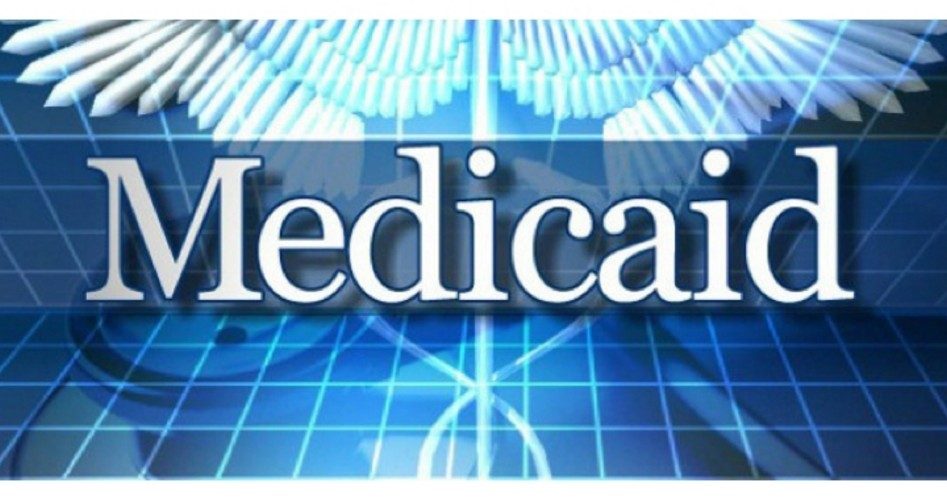
Those who believe that the purpose of ObamaCare is ultimately to bring about single-payer, nationalized healthcare continue to be vindicated. The latest evidence: Most of the people getting coverage under the healthcare law are doing so via Medicaid, not private insurance — a trend that could spell disaster for patients, taxpayers, and insurers.
“Though the federal government has not yet released enrollment numbers at all, some state exchanges have revealed their Obamacare data,” reported the Daily Caller. “In early [sic] every case, Medicaid enrollment has exceeded new private insurance coverage.”
According to CBS News, “In Washington, of the more than 35,000 people newly enrolled, 87 percent signed up for Medicaid. In Kentucky, out of 26,000 new enrollments, 82 percent are in Medicaid. And in New York, of 37,000 enrollments, Medicaid accounts for 64 percent.” Oregon, meanwhile, had signed up 56,000 people for Medicaid by October 17 but not a single one for private insurance, noted the Washington Post.
“Obamacare is really just a massive Medicaid expansion,” Tarren Bragdon of the Foundation for Government Accountability told the Daily Caller.
Medicaid, a joint federal-state program originally intended to help the very poor obtain medical care at no cost, was expanded by the healthcare law to cover Americans earning up to 138 percent of the federal poverty level, with the federal government picking up most of the tab. After the Supreme Court made the expansion optional, about half the states chose not to proceed with it. However, even those states opting out of expansion are still likely to experience a five-percent increase in Medicaid enrollment “because of intensive outreach efforts related to the health law and because the [law] makes it easier to sign up for coverage through the new online health insurance exchanges,” stated Kaiser Health News. In addition, wrote CBS, “Medicaid experts say … it’s easier to enroll in Medicaid than private insurance.”
While those newly obtaining Medicaid coverage may be rejoicing now, they — and other patients — may find that this new coverage isn’t the solution to their woes, said the Daily Caller:
Medicaid pays providers less than the cost of the care they provide … meaning the more Medicaid patients, the bigger loss for hospitals and medical providers.
Some of those providers may stop seeing Medicaid patients at all, meaning the newly covered patients may still face a dearth of quality care options.
Obamacare supporters have touted the program as an opportunity to get the uninsured out of emergency rooms. Use of emergency rooms for everyday care by the uninsured causes crowding and puts taxpayers on the hook for expensive care. But if those signing up for Obamacare are overwhelmingly choosing Medicaid, that may not fix the problem.
“Medicaid patients use the ER four times more frequently than the uninsured or those with private insurance,” Bragdon said, “so what the legacy of this Obamacare Medicaid expansion will likely be is more wait time and more crowding of ERs, not less.”
The cost for all this new coverage, whether funneled through federal or state governments, ultimately comes out of taxpayers’ pockets. Many of those same taxpayers will also be facing higher health-insurance premiums under ObamaCare and will surely be rankled to find that they must give up even more of their dwindling earnings so that others can get free coverage.
Insurance companies are not happy about the enrollment imbalance between Medicaid and private insurance, either. One of the keys to making ObamaCare work — assuming it can be made to work at all — is getting young, healthy people to buy private insurance. The idea is that the premiums paid by these people, who will collect few benefits, will offset the cost of covering all the people with chronic conditions who will now be buying insurance since the law forbids insurers to turn them down or charge them higher rates.
“Either the private insurance enrollments come up somewhere around the expected amount or there’s going to be a problem,” former Medicaid director Gail Wilensky told CBS. “You need a volume and you need a mix of people that are healthy as well as high users in private insurance, in order to have it be sustainable.”
If private insurers fail because of ObamaCare, though, don’t expect the government to take the blame. As Sheldon Richman has observed, “No matter how much the government controls the economic system, any problem will be blamed on whatever small zone of freedom that remains.” That, in turn, will give the government an excuse to take over even more of the healthcare system, as many ObamaCare proponents have desired all along.
Maybe — to borrow a software engineering cliché — the spike in Medicaid enrollments at the expense of private insurance isn’t a bug in ObamaCare but a feature of it.



